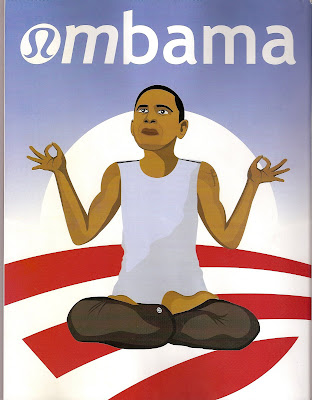
Andrew Sullivan has dragged me back into thinking about the Obama Presidency through an essay in Newsweek geared at defending President Obama’s first term. He rightly notes the irony that criticism of the president from the right and the left paint starkly different prictures of the man. From the right:
Obama has governed as a radical leftist attempting a “fundamental transformation” of the American way of life. Mitt Romney accuses the president of making the recession worse, of wanting to turn America into a European welfare state, of not believing in opportunity or free enterprise, of having no understanding of the real economy, and of apologizing for America and appeasing our enemies. According to Romney, Obama is a mortal threat to “the soul” of America and an empty suit who couldn’t run a business, let alone a country.
But the Left sees him as a:
hapless tool of Wall Street, a continuation of Bush in civil liberties, a cloistered elitist unable to grasp the populist moment that is his historic opportunity. They rail against his attempts to reach a Grand Bargain on entitlement reform. They decry his too-small stimulus, his too-weak financial reform, and his too-cautious approach to gay civil rights. They despair that he reacts to rabid Republican assaults with lofty appeals to unity and compromise.
Sullivan, as he has done in the past, attributes this to a “long game” that Obama is playing where he is less interested in winning short term political battles, but is rather more focused on changing the long term dynamics on policy issues. If he’s indeed in it for the “long game,” then catering to the whims of pundits and partisans that want you to “mix it up” would not serve his ends.
But in an age of constant chatter, is the right type of executive leadership style one which makes no sound? Is Obama trying to get the Republicans to “snatch the pebble from his hand”? It has been interesting to watch. In my head, I try to work through the counterfactuals. What if he pushed back against the Republicans on the debt ceiling issue? Would the outcome have been different? Perhaps? But I am coming more and more to the view that in our Internet/Twitter/Facebook age, we might be best off with a leader who consciously seeks to offer a “non image” of him/herself.
In this Super Collider of ideas, images and identities in which we live, we might be better off with a leader who almost chooses not to place himself into the whirlwind and instead pushes ahead and formulates policy (aggressively when he has a majority, but more conciliatory when he has opposition). Is all this “leading from behind” stuff a recognition that this is an ungovernable electorate. No fireside chat is going to bring the nation together. We live in an ironic, post-authenticity era. Does he know this?
Is this some great, transformational president we are experiencing? Or maybe he’s just really bad at agenda setting and Sullivan (and me by extension, I guess) are giving him way too much credit. Maybe his weaknesses as giving the “big speech” that will bring the country along is just that and nothing more. Maybe caving on the debt ceiling was just a cave and not some grand “rope a dope” strategy?
This puzzle is what makes Obama an interesting figure to observe. He does this politics thing differently and I’m not entirely sure if he does it badly or brilliantly.

Comments 1
Letta Page — January 18, 2012
After having worked on the Jeffrey Alexander piece "Heroes, Presidents, and Politics," for the Contexts Fall 2010 issue, I'd be *so* interested to hear what Alexander makes of Sullivan's article. Fascinating piece, Jose---thanks for bringing it to my attention!
(*that link up there is to the "audiobook" version of the article, since the full text is no longer avail. online for free from Contexts)